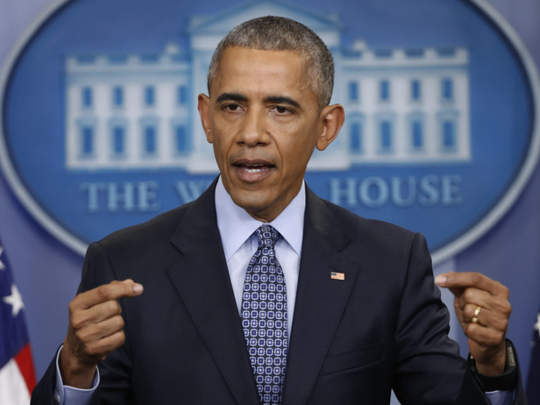
As Republicans in Washington grapple with altering the Affordable Care Act, they have proceeded in a direction that will do little to curb the cost of health care in America.
Instead, they are pushing a bill that, according to the Congressional Budget Office, may save the government money, but will end coverage for 24 million people (though several million of those would be willingly giving up coverage the law now requires them to have). If it passes, Republicans will not only own America’s health care problems for years, but they will also have violated more than six years of promises.
Since 2010, Republicans have pledged to repeal — not fix, not tinker with, but abolish — Obamacare. In 2016, that was a centrepiece of Republican presidential candidate Donald Trump’s campaign. Republicans ran advertisements noting they had voted 70 or more times to repeal the Affordable Care Act, and they would do it as soon as they had control of Congress and the White House.
Voters gave them just that. And now Republicans, who had used the word “repeal” like a meditation chant, act like the proverbial dog that caught the car. The plan they all liked in 2015 — one that would have ended the law’s mandates, subsidies and Medicaid expansion — would not pass today. Yes, Republicans, you really did once author a plan to credibly repeal Obamacare, unlike what you are considering now.
Of course, Republicans are acting this way in large part because of Trump’s voters. Despite all the hard talk about repealing Obamacare, Trump’s voters supported a man who promised a government-run health care plan that would provide universal coverage. In other words, he promised more than Obamacare. For that matter, Trump promised more government involvement in health care than Hillary Clinton did. It is not hard to see why Republicans think they can get away with breaking their promises. Their own party’s presidential nominee promised more than what Obama offered and claimed he could pay for it all without raising taxes.
Trump’s voters want Obamacare, but they want Trump’s gold-plated branding on it. They claim to hate Obamacare, but data show a good number of Trump’s voters are actually using the Affordable Care Act. Just don’t tell them that the Affordable Care Act is Obamacare. They like the former and hate the latter.
The 2016 election was, though it pains me to say, a defeat for conservatism. Both parties were willing to gravitate towards candidates who promised a strong federal government that could deliver a panacea without worrying about costs. Trump promised to be a strong man stamping out waste, fraud and abuse while putting Americans first. His voters are smart enough to understand that his programmes will cost money. They just do not seem any more concerned than Republican leaders in Washington about budget costs. They all make a great show of caring in public, but it is just show.
So Democrats and Republicans are fighting over who gets to expand the government for which voters and by how much. The Republicans, who claim to be the party of fiscal discipline, want to spend money, but at a slower pace than the Democrats and without raising taxes. It did not have to be this way. The Republicans did not have to embrace the Democrats’ presuppositions in creating Obamacare.
Despite the name “Affordable Care Act”, the Democrats were far more focused on expanding coverage and ensuring every American could get insurance than they were on making coverage affordable. When Republicans decided to amend Obamacare, they too focused on the numbers covered.
Instead, they should focus on cost.
If Republicans stopped worrying about how many people had access to a government-managed health care programme and started focusing on reducing costs, they could potentially increase the number of people covered. Doing so would necessitate scaling back the government’s involvement in health care, reducing insurance mandates, unleashing free-market competition among insurance providers and allowing consumer choice in selecting plans.
Increasing competition and choice would lower prices for all kinds of insurance. Lower prices would free up corporate dollars for other things like innovation and jobs. Lower prices would also make it far more affordable for Americans to buy their own insurance than wait for government to subsidise it.
For conservatives like me, however, it appears the train has left the station. Democrats and many Republicans are invested in the idea of involving government in basic health care choices. The Republicans are even keeping Obama’s individual mandate, though in repackaged form.
Americans are increasingly cynical about politics. Watching Republicans campaign for years on repealing Obamacare only, to see the effort collapse, will just increase that cynicism. But the reverse is true, too. Watching many Americans demand repeal, while voting for a man who promised a government-run, universal coverage solution, only increases politicians’ cynicism about the American voter. The voters know the politicians will break their promises once elected. The politicians know the voters will let them get away with it as long as the spoils of victory are divvied up.
Paying the bill will be a problem for some other day.
— New York Times News Service
Erick-Woods Erickson is the editor of the website The Resurgent and a talk-show host on the radio station WSB.









